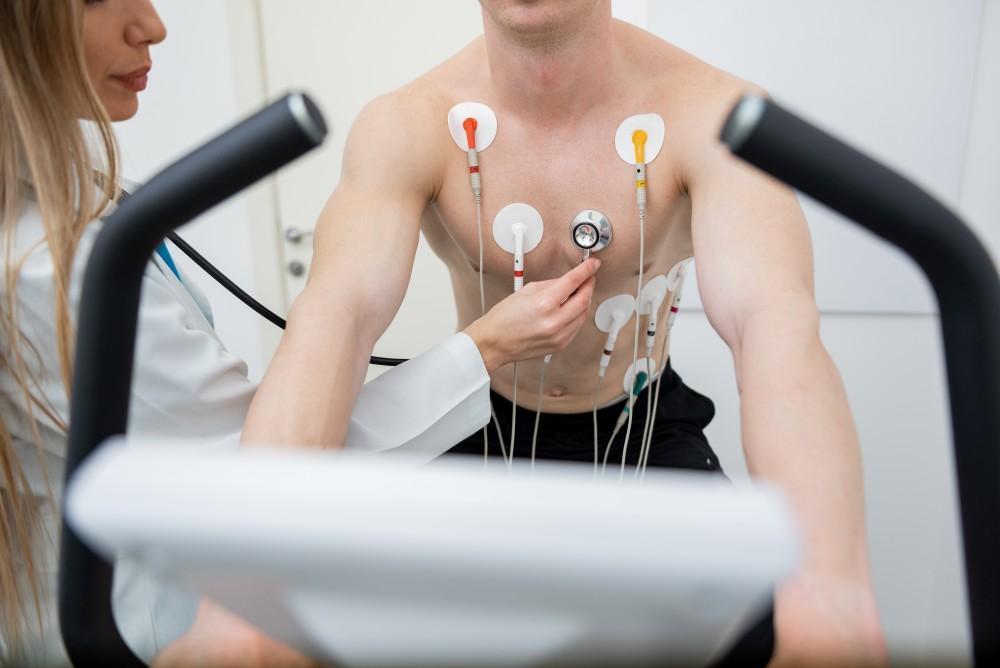
What Can I Expect During a Stress Test?

Stress tests are painless tests that reveal important information about your heart when it’s not at rest. Dr. Henock Saint-Jacques may recommend a stress test to help diagnose a specific condition or to monitor your current treatment plan.
In either case, it’s normal to wonder what happens during a stress test. Here at Harlem Cardiology, our team of experts offers a few different kinds of stress test, so we’ll provide you with your specific preparation steps depending on which type you have — an exercise stress test or a medication-induced stress test.
Here’s what you need to know about your upcoming stress test.
What can I expect before your stress test?
Before your stress test, it’s important to know which type you’ll be having — an exercise-induced stress test or a medication-induced stress test. Both assess how your heart responds to stress, but the difference lies in how that stress is applied.
During an exercise stress test, you’ll walk on a treadmill or ride a stationary bike to naturally increase your heart rate. For an exercise stress test, wear comfortable, loose-fitting clothes (gym attire is ideal) and supportive walking shoes.
In a nonexercise stress test, medication is used to simulate the effects of exercise on your heart, so you won’t have to worry about wearing athletic clothes or gym shoes.
In some cases, Dr. Saint-Jacques may recommend a nuclear stress test. This type of stress test uses radioactive dye to highlight areas of your heart. For a nuclear stress test, you may need to follow specific instructions regarding eating, drinking, or stopping certain medications.
Regardless of which type of stress test you need, you should:
- Avoid caffeine the day before your test
- Bring your inhaler if you use one
Contact our team with any questions about your preparation.
What to expect during an exercise-induced stress test
Before your test, our team places 12 adhesive patches on your chest and abdomen. These sticky patches hold the electrodes onto your skin while you exercise. The electrodes are part of the EKG, which records your heart’s electrical activity and helps us monitor your heart during exercise.
We then listen to your heart and lungs, check your blood pressure, and record your baseline heart rate.
You’ll start walking slowly on a treadmill as we gradually increase the speed and incline to raise your heart rate. The test continues until you reach your target heart rate, feel out of breath, or experience symptoms like chest or leg pain. Dr. Saint-Jacques monitors you closely and stops the test if needed.
Most people take about 15 minutes to complete this test.
What to expect during a medication-induced stress test
During a medication-induced stress test, you’ll receive an IV infusion of a medication that stimulates your heart. Medications like adenosine or regadenoson can mirror the effects of exercise. You might need this type of test if you can’t physically exercise.
You may feel a faster heartbeat, warmth, or mild shortness of breath, similar to what you’d experience during physical activity. Throughout the test, your heart rate, blood pressure, and EKG are closely monitored.
The effects of the medication wear off quickly, but if needed, a reversal agent can be given to ease any discomfort.
What to expect during a nuclear stress test
A nuclear stress test includes all the steps of a medication-induced stress test but adds imaging to better evaluate the blood flow to your heart. You’ll receive an injection of a radioactive tracer, which allows a special camera to take pictures of your heart before and after stress is induced.
The test helps Dr. Saint-Jacques identify areas with poor blood flow or damage. After the images are taken, you may need to drink water (about two liters per day) and use the restroom to help flush out the tracer, but it’s safe and leaves your body naturally within a day.
What to expect after your stress test
No matter which type of stress test you have, the next step is to review your results. Dr. Saint-Jacques looks at your heart’s response to stress, blood flow patterns, and any abnormal EKG changes.
If the test is normal, it means your heart is functioning well under stress. If there are concerns, such as reduced blood flow or irregular heart activity, further testing or treatment may be recommended.
Regardless, Dr. Saint-Jacque explains all of the findings, answers any questions, and discusses your next steps based on your results.
If you have concerns about your heart, don’t hesitate to visit us in East Harlem, New York. You can reach our office at 646-381-2181 or through our online booking system.
You Might Also Enjoy...


New Year, New Heart: 7 Resolutions for a Healthier Cardiovascular System

Heart-Healthy Holiday Feasting: A Guide to Guilt-Free Indulgence

5 Tips for Managing Your Cholesterol During the Holidays

What Your Vascular System Reveals About Your Heart Health



